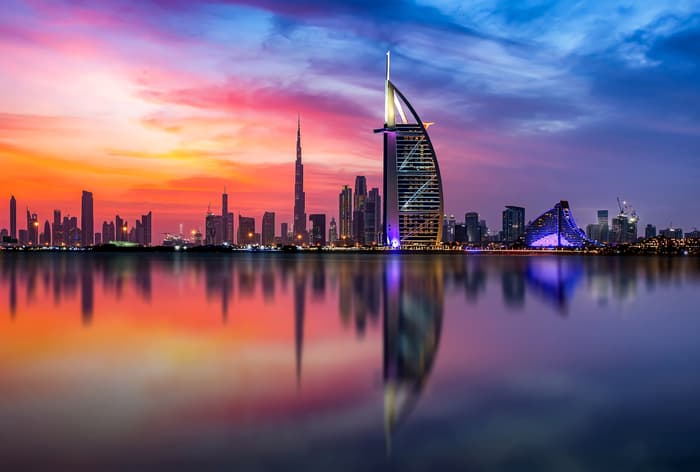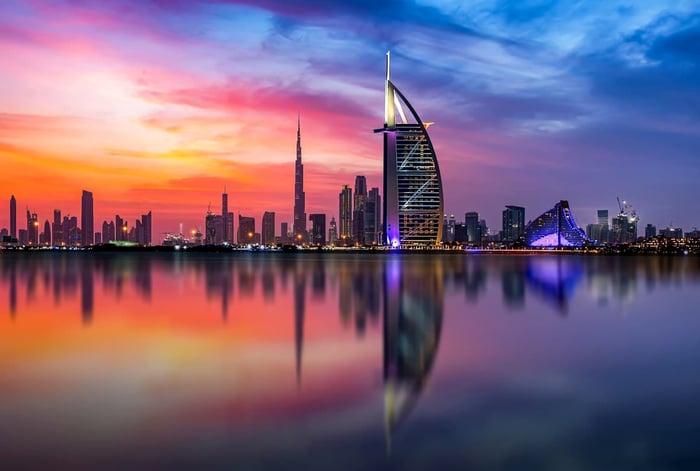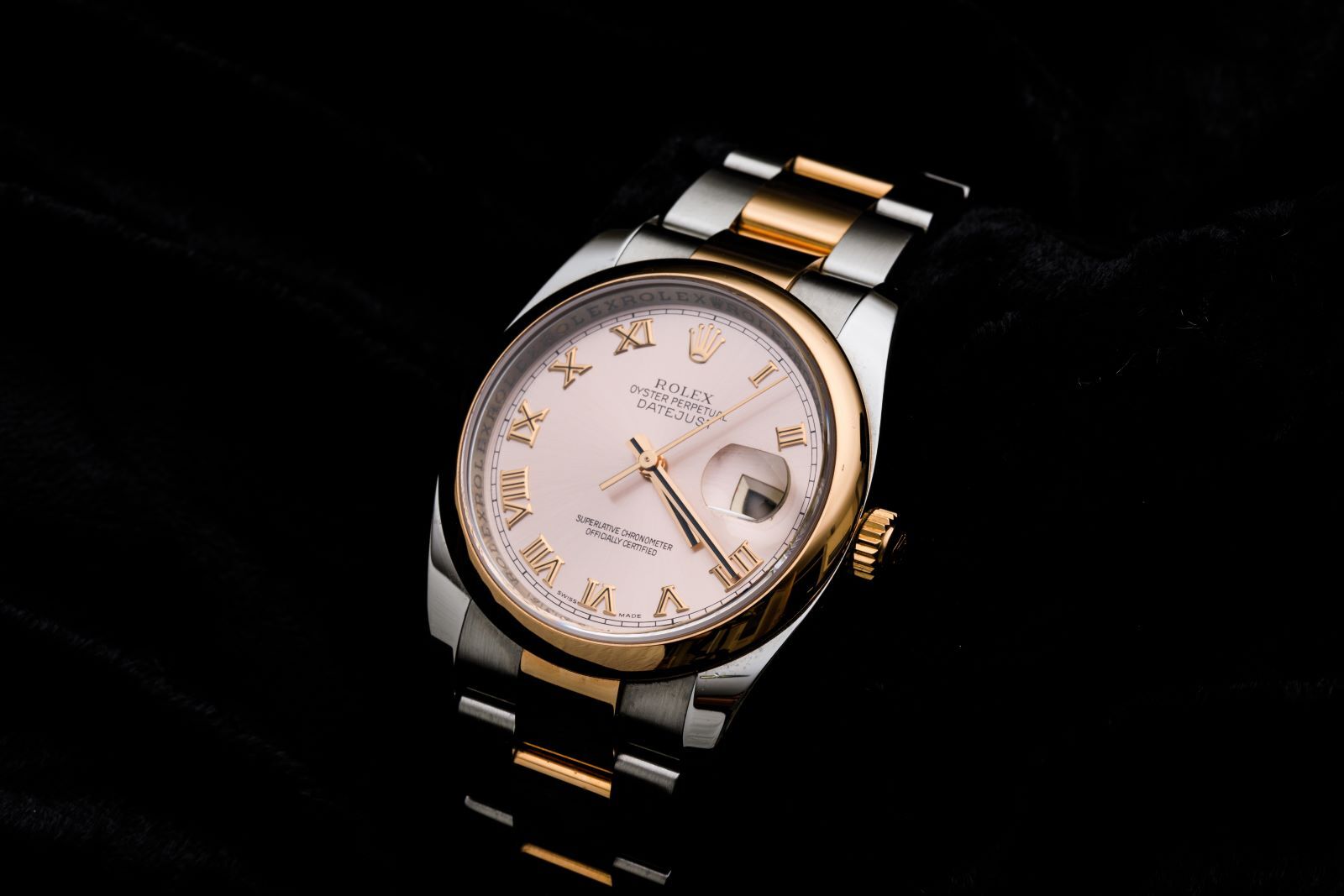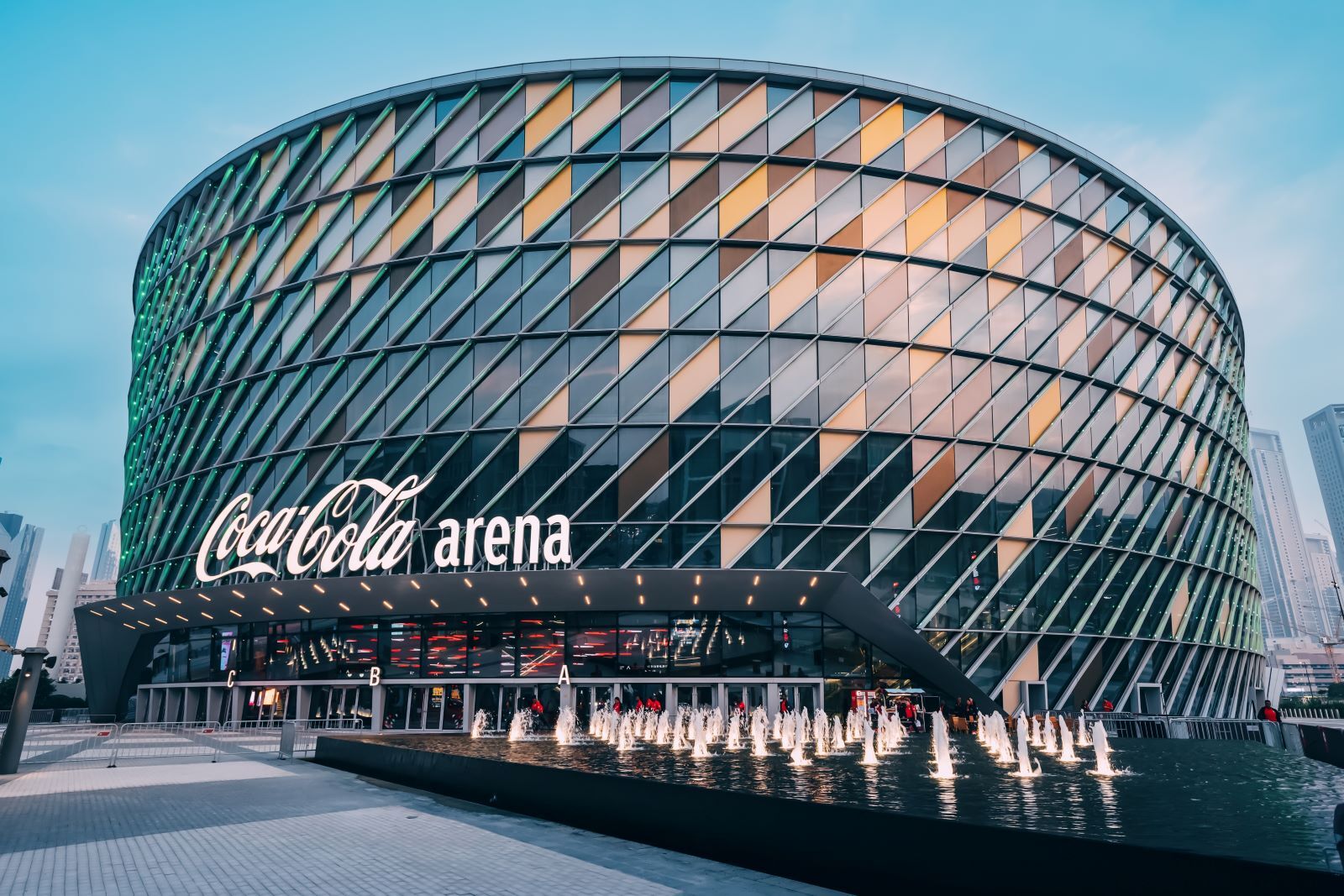Comprehensive Guide: Moving to Dubai from the UK
Published: 12 June 2024
Moving to Dubai from the UK can be a joyful yet daunting endeavour. Dubai presents a compelling proposition for those in search of exciting career prospects, and a dynamic environment for personal and professional growth.


Whether you're thinking of relocating for work, or lifestyle, or simply want a taste of what the city has to offer, navigating the process may be a bit daunting. However, with proper planning and understanding of the essentials, your transition will be smooth and exciting. Our comprehensive guide offers relevant insight that will help ease the process when you are prepared to relocate.
Understanding the Process
Visa Requirements
The first step when moving to Dubai is understanding the visa requirements and the available visa types. Depending on your purpose for relocation, there are different visa options you could choose from that best suit your needs.
1. Employment Visa
When you secure a job in Dubai, your employer is obliged to provide you with a work visa and medical insurance, which typically lasts two to three years depending on the type of contract signed, and is renewable if you continue working for the same employer.
Dependent Visa
This visa allows your family members to join you in Dubai. If you have an employment or business/investor visa, you can easily sponsor dependents. Additionally, if your spouse or parent already has a visa in Dubai, they can apply for a dependent visa for you.
Student Visa
University students in Dubai are eligible for this visa, which has a validity of one year, and is renewable upon proof of continuing studies in the city.
Retirement Visa
Valid for five years, this visa can be obtained subject to proof of funds amounting to a monthly income of £3,300, personal savings no less than £221K, or owning property in Dubai with a value of £221K.
Investor/Business Visa
All UK nationals can avail of an Investor/Business Visa upon relocating their business, starting a new one in Dubai, or when investing in an existing business in the UAE. For a new business venture, you'll need to secure a trade licence from the Department of Economic Development.
Golden Visa
A ten-year Golden Visa can be obtained when investing £441K in property or a business in UAE, and it allows you to sponsor family as well. Unlike other visas, the Golden Visa comes with more flexibility, meaning you can remain outside the UAE for more than the regular 6 months, exit and re-enter at any interval, with no restrictions.
Housing
The city is known for its urban lifestyle depicted in its towering skyscrapers, but there are also numerous gated communities offering suburban living with lots of open spaces and greenery. Dubai is home to some of the best waterfront residences in the world along with multiple communities spread around award-winning golf courses.
From premium apartments, townhouses, or villas, to ultra-luxurious properties like penthouses, duplexes, and mansions, Dubai’s real estate options are endless and offer a high-value residential proposition.
When renting in Dubai, it is important to know it involves yearly contracts. Negotiations with the landlord are possible, and payment intervals can often be adjusted to every 6 months, 4 months, or 3 months, though this might increase the total rental cost. If you can agree on multiple payments, post-dated cheques are required upfront when making the rental agreement.
If you're thinking about buying property in Dubai, the real estate market is thriving and offers nearly double the return on investment (ROI) compared to properties in London. Also, when buying Dubai property valued at £441K or more, it can qualify you for the Golden Visa.
Healthcare and Education
Dubai has some of the world's best public healthcare systems and uses the latest technologies in the medical field. The UAE ranks in the top 10 of the Bloomberg Health Care Efficiency Index, a testament to the city’s prompt medical attention and care, for residents and visitors alike. Unlike the UK, there's no free healthcare for residents in Dubai except for UAE nationals.
If you already joined the workforce in Dubai, your employer usually provides health insurance, otherwise, you'll need to purchase a private one As a business owner, you also have to provide medical insurance for your employees if you plan to start a business here.
Certain prescription and over-the-counter medicines are not allowed in the UAE. It's best to consult with the drug control department beforehand to find out if you have permission to bring in specific prescriptions from the UK.
Finding a suitable school for children may seem overwhelming initially, but you'll discover a wide range of options available in Dubai.
The city is home to numerous private international schools, each with its own educational focus. Some schools adhere to the British education system and teach the National Curriculum of England, while others follow the syllabi of the US, or offer the International Baccalaureate Diploma Programme, so parents have ample choices.
The Knowledge and Human Development Authority (KHDA) serves as Dubai's educational regulatory body, guiding school selection and application procedures.
The KHDA conducts inspections and publishes reports on school performance, offering insights into strengths, weaknesses, and success stories. Their school directory also provides information on programs and curricula.
The KHDA has a rating system that evaluates schools on a scale of 6 from Outstanding, Very Good, Good, Acceptable, Weak to Very Weak, based on their performance across different criteria.
Financial Planning
Cost of Living
Understanding the cost of living in this city is important for effective financial planning when moving to Dubai from the UK.
The UAE doesn't have any income tax for individuals, meaning you don’t pay any tax on your earnings resulting from your job, business, or investments. This has been one of the biggest driving forces in attracting people to move to Dubai. It is important to note that though there are no personal income taxes in Dubai, there is a 5% VAT and a corporate tax of 9% which is still lower than in most countries.
Banking
Setting up a bank account in Dubai is a straightforward process. Most international banks have a presence in the city, along with a range of national banks offering several services tailored to specific needs. Dubai, being the financial hub of the Middle East, offers a robust banking system with numerous account providers to choose from.
To open an account, you typically need to visit your bank of choice, with your Emirates ID, salary certificate, or trade license, if you are a business owner. Proof of employment is usually required before opening a bank account. As a business owner, the process might be more complex as additional document verification is necessary before the account is opened. Once the application is submitted, it usually takes just a few days before the process is completed.
Culture
Cultural Norms
Adapting to Dubai's cultural norms is important for a smooth transition. The city is known for its multicultural environment, with the majority of the population being expats from different parts of the world.
Though the UAE is a Muslim country non-Muslims are not expected to comply with Islamic traditions, however, they should respect it along with the local customs, traditions, and social norms. Here are some things to keep in mind:
In line with UAE’s cybercrime laws, you are not allowed to take pictures of other people without their consent. You are not allowed to take pictures of accidents, embassies, government buildings, military installations, or car accidents.
In Dubai, public acts of indecency are seen as culturally sensitive and violations may result in fines or legal repercussions.
Eating and drinking in any kind of public transport is prohibited, this includes taxis, buses, metros, trams, and monorails.
The use of abusive language or the display of offensive gestures is also not allowed and could lead to legal implications.
There have been high misconceptions among newcomers that women’s dress code in Dubai carries some restrictions, but this is completely false. There is no dress code for women unless visiting a mosque. Ladies are expected to adhere to looser-fitting clothing that conceals the arms and legs, as well as cover their heads with a scarf, as a sign of respect.
Language and Communication
While English is widely spoken and understood in Dubai, Arabic is the official language of the UAE. Since a majority of the population are expatriates, almost everyone speaks English. You will also find a major chunk of the population from back home, as over 240,000 UK nationals live in Dubai.
Lifestyle and Leisure
Entertainment All Around
Dubai is famous for its resplendent beaches and high-end shopping malls, which include every high-end brand from around the world, along with a collection of fantastic theme parks and water parks that are perfect for a day out ( weather permitting). Beaming with cultural events, festivals, concerts, and exhibitions, Dubai is the lifestyle hub many aspire to be part of.
The vibrant social scene presents many tempting, popular activities, some of which include camping and off-roading desert culture during the cooler season, water sports, flyboarding, kayaking, stand-up paddle boarding, and classic car shows.
There are a lot of hiking trails in the country and though they are scenic, don’t expect a lot of greenery or wide lakes. Golfing is equally popular, with world-class golf courses designed by renowned architects, some of which host prestigious championships and offer fantastic views of the fairways. If nightlife is your thing, you will love the many party venues the city has on offer. From classy rooftop bars and lounges with views of the Dubai skyline or the sea, to beach clubs and bars, you’ll have a rainbow of options when it comes to finding a spot for your night out.
Feast of Middle East Cuisine
The city’s restaurant scene is as diverse as its residents. You’ll find everything from exotic Asian food to Mediterranean, Arabic, and international cuisine. It is home to so many cuisines that exploring the restaurants in Dubai becomes an adventure in itself. The city is home to 14 Michelin-starred restaurants, for those wishing to dine in regal style. Restaurants by celebrity chefs like Gordon Ramsay, Nobu Matsuhisa, or Alvin Leung will surely take your dining experience to new heights.
Most international food chains are available in the city, especially UK favourites such as Nandos, along with other famous fast-food franchises. If you find yourself missing home food, multiple restaurants are serving British food in Dubai.
Weather
Dubai experiences a tropical climate, ranging from pleasantly temperate and sunny to extremely humid and uncomfortably hot. The peak summer months, from May to September, often see average temperature surpassing 45°C along with high humidity levels. From December to March, the weather is pleasant and it gets cooler. Occasional rainfall occurs, typically in short, sharp storms.
Moving to Dubai from the UK presents a unique opportunity for new beginnings in one of the world's most happening and cosmopolitan cities. As with any new place, it’s important to understand the intricacies of the city and once you do, it becomes easy to adapt. Equipped with the basics, and after doing a bit of personal research, you will conclude that Dubai scores high, on all levels, and you will be ready to be transformed by its tale– tax-free!



